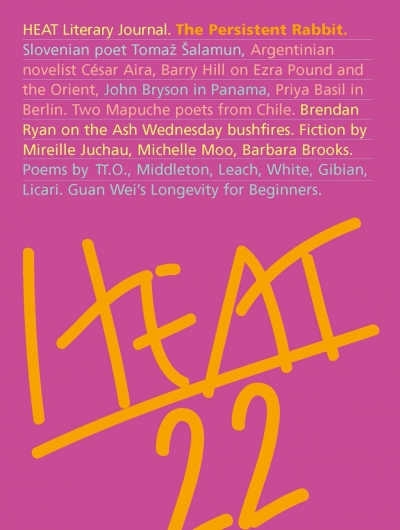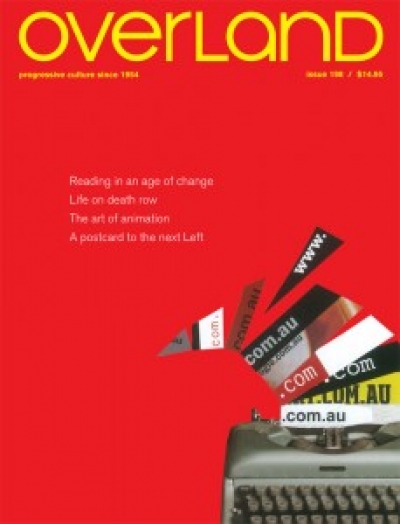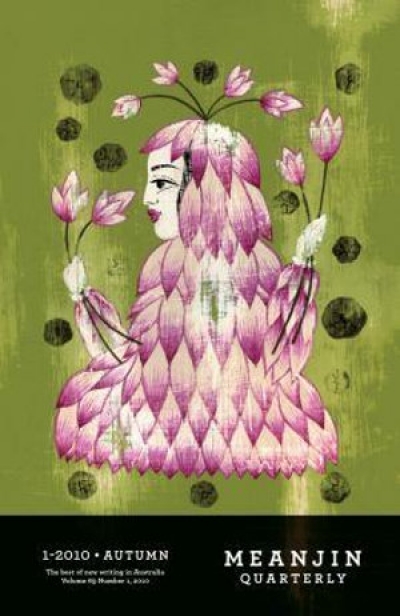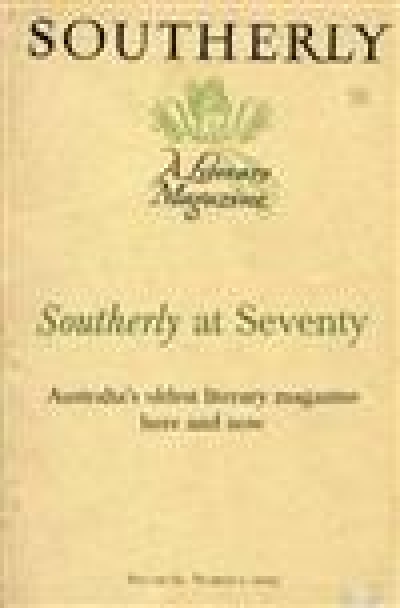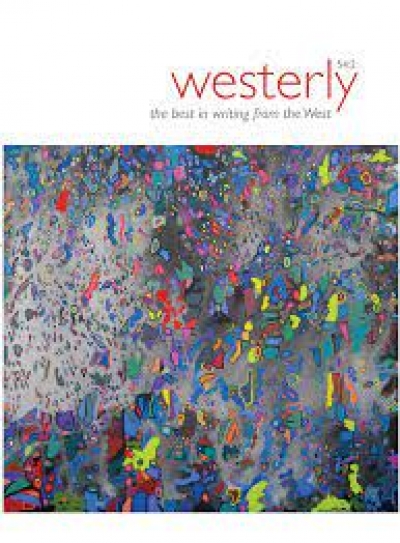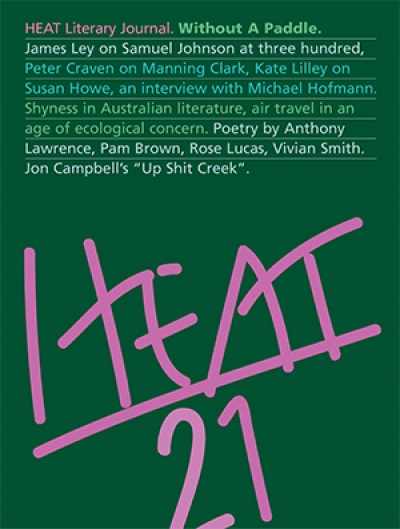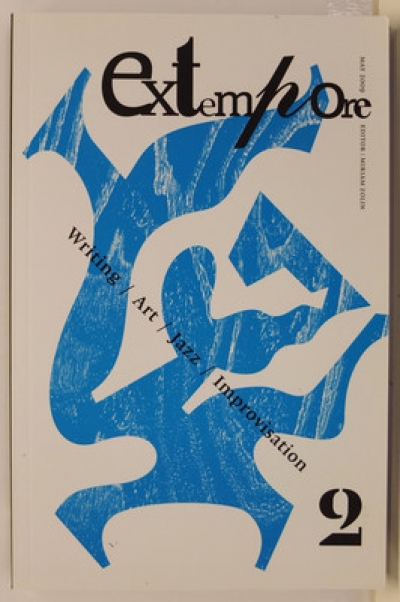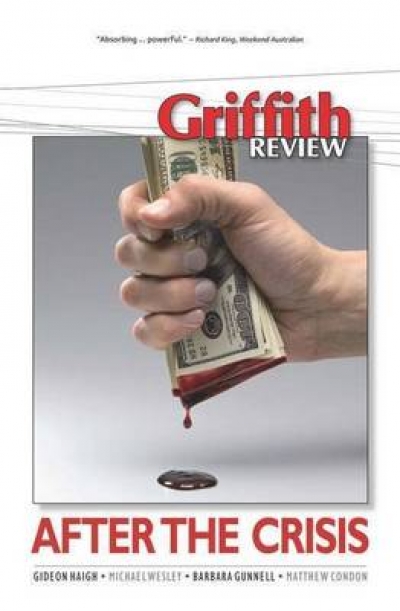Journals
Southerly, Vol. 70, No. 1 edited by David Brooks and Elizabeth McMahon
by Simon West •
Transnational Literature, Volume 2, Issue 2 edited by Ioana Petrescu
by Patrick Allington •
HEAT 22: The Persistent Rabbit edited by Ivor Indyk
by Patrick Allington •
Southerly, Vol. 69, No. 2: Southerly At Seventy edited by David Brooks and Elizabeth McMahon
by Jeffrey Poacher •
Westerly, Vol. 54, No. 2 edited by Sally Morgan and Blaze Kwaymullina
by Patrick Allington •
Griffith Review 25: After the crisis edited by Julianne Schultz
by Jay Daniel Thompson •

